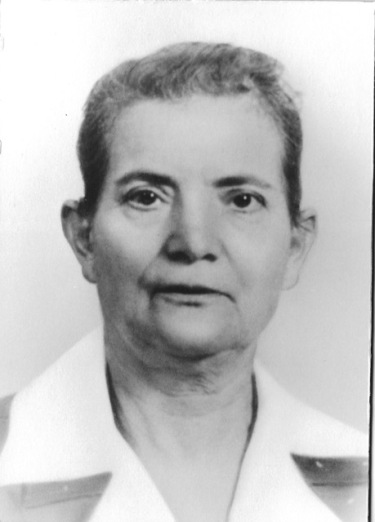The prompt this time was two lines from David Ray’s poem, “At Emily’s in Amherst“:
Outside, standing between Cypresses
I imagine her
What I wrote in response is below.
__________________________________
The angel, Gabriel, came to her in a dream, she said. He told her to get her affairs in order: she only had two weeks to live. So she gathered her grown children from as far away as Chicago and Los Angeles, and brought them to their childhood home on Mt. Washington.
“Are you pregnant?” she asked my mother, who was only six weeks late.
“I think I am,” Mom said.
“Yes,” my grandmother said. “And it’s going to be a boy.”
She was right.
We never met. That kidney-shaped fetus was me, and she did, in fact, die two weeks after having that dream.
Here’s what I know: she was a healer. Women would bring their colicky babies to her and she would lick her thumb and make the sign of the cross on their foreheads. “Don’t wash it off,” she’d say, and send them home to sleep.
She baked her own bread and grew her own tomatoes. Made lasagna from a simple recipe handed down to Mom, to Pop, and then to me. Everyone always asks for the recipe.
She never learned to speak English. When my father was a little boy, she used to make him translate for her at the open markets in Pittsburgh, haggling over prices in two languages.
She gave birth to eight children. The oldest, Nicholas, died of pneumonia after crossing the Atlantic with her alone in 1903. They were processed at Ellis Island. Her name is not on the wall there, but she exists in the ship’s manifest in curly script. Nucito was her maiden name.
When I visited her hometown in Basilicata—a hilltop town called Corleto Peticara—I stood in front of the altar in the exact spot where she married my grandfather in the tiny church built in the 15th century.
Life was hard for them. They picked olives and grapes, they tended sheep and cows. To her young, strong body and mind, America seemed like a magical place where life would be clean and new and modern.
Here’s what happened: they lived in poverty, in an Italian, Irish, Jewish ghetto. Her husband had an affair with the homely widow up the street who had a witch’s hook nose and always wore black. My grandmother grew older and had a stern, handsome face, but my sister said she was kind and quiet and always smelled good. She always wore an apron. My mother only spoke a little Italian, but they still managed to have long conversations, and they often held hands.
Sometimes, I still see her in the old country, her hair in a long, dark braid. I imagine her standing between two Cypress trees. I want to tell her not to marry him, to stay in Italy, but I know she won’t listen to me. She wants to come to America. She wants me to have a better life than she had.
_____________________
*Italian for Grandmother


